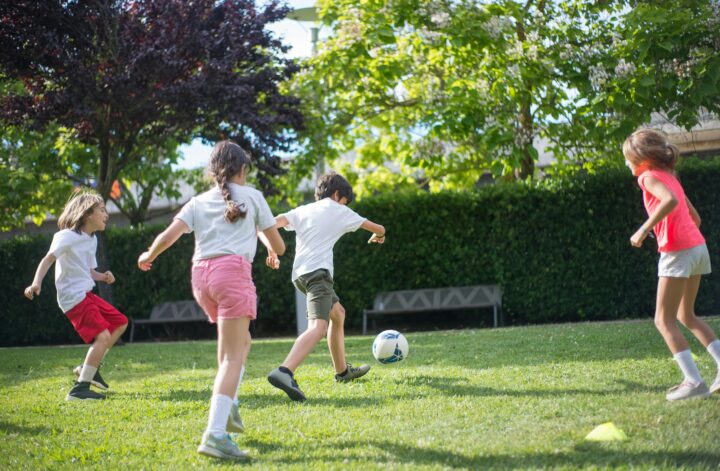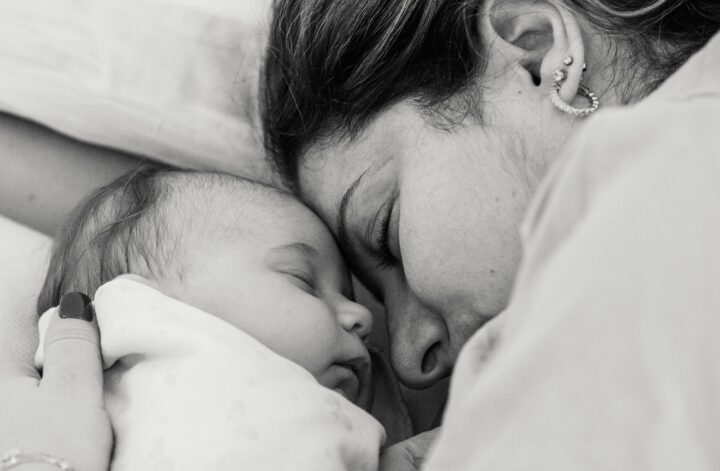Parenting is like being on one of those roller coasters that spin you around, flip you upside down, and toss you from side to side—and that’s on a good day (alright, it’s not that crazy, but some days do feel like it)! Here, we’re taking a look into the ins and outs of keeping your kiddos healthy, not just by crossing our fingers and hoping for the best, but by actively laying down a rock-solid foundation and steering through the maze of modern health challenges.
1: Establishing A Solid Foundation
Nutrition: Building Blocks Of Health
Let’s talk about tummy health! Good nutrition is the bedrock of lifelong health, and it’s all about balance and variety. Encourage fruits, veggies, lean meats, and whole grains. Eating a healthy and balanced diet shouldn’t be boring, so keep things fun. It’s all about making food fun and exciting and setting up a love for healthy eating without making it feel like a chore. And when kids are part of the food prep, they’re more likely to eat what they’ve made—talk about a win-win! This early hands-on experience can also spark a lifelong interest in cooking and nutrition.
Physical Activity: More Than Just Play
Getting the kids moving isn’t just about tiring them out before bedtime (though, let’s be honest, that’s a pretty nice perk). Whether it’s soccer, a dance-off, or a family walk, active kids are happy and healthy kids. Mix it up, keep it exciting, and maybe even show them your moves—everyone loves a dance challenge, right? It’s also a great way for them to learn teamwork and persistence, all while they’re laughing and running around. Remember, it’s not about forcing sports; it’s about finding their passion and encouraging it.
Sleep: The Undercover Secret Of Health
Never underestimate the power of sleep—it’s when the magic of growth and healing happens! Stick to a bedtime routine that invites sleep naturally, like winding down with a story or some calm music. Make sure their room is a cozy cave of comfort: cool, quiet, and dark. Also, keep those bedtime hours consistent even on weekends; it helps keep their little internal clocks ticking just right. A well-rested child is more alert, happier, and just plain nicer to be around.
Mental Health: Early Awareness And Action
Mental wellness is huge, and it starts with open conversations. Chat about feelings as much as you talk about their day at school. Introduce them to calming techniques like deep breathing or meditation—yes, kids can totally meditate! And always keep an eye out for signs they’re not coping well, so you can jump in and help or find someone who can. Plus, don’t forget to model healthy emotional habits yourself; they’re watching how you manage stress and mimic it.
Preventative Healthcare: A Proactive Approach
Regular doctor visits are a must, not just for the times when germs attack. Use these check-ins to talk about growth, emotional development, and staying safe in a world that’s always changing. Just think of these visits as your peace-of-mind sessions, where you can ask all those nagging questions and get expert advice tailored just for your little one’s needs. It’s always better to ask than to sit wondering about things that actually aren’t worth worrying about. These appointments can clarify your concerns, debunk common myths, and keep you informed about what’s best for your child’s health and well-being.
Regular check-ups are also a great chance to spot any early signs of hearing issues, where something as simple as hearing aids could make a big difference. These preventative measures help catch conditions early on, protecting your child’s ability to learn and socialize. Plus, these visits are perfect for chatting about all things health-related—from nutrition to the best ways to stay active. It’s all about keeping your child happy and healthy for the long haul.
Hygiene Habits: The First Line Of Defense
Teaching kids the importance of good hygiene can set them up for a lifetime of good health. Start with the basics like washing hands regularly, especially before meals and after playing outside. Make it fun with songs or games that last as long as a good scrubbing session should. It’s not just about avoiding germs; it’s about instilling habits that will stick with them as they grow.

2: Navigating Modern Health Challenges
Technology And Health: Finding A Balance
Screens are everywhere, and managing them can be tricky. Set some ground rules—like no devices during dinner or before bed. Encourage digital breaks by swapping screen time with other fun stuff, like board games or a quick trip to the park. And don’t forget to lead by example; let them see you putting down your phone too. It’s about teaching them that life doesn’t need a filter to be fabulous.
Dealing With Allergies: Safe And Effective Strategies
Allergies, oh boy—they can be a real pain! Whether it’s food, pollen, or pets, knowing what triggers your child’s allergies is crucial. When it comes to allergy treatments, working with your doctor to figure out safe and effective management strategies is key. Teach your child about their allergies too, so they feel empowered, not scared. Having a game plan makes accidental exposures less scary for everyone involved.
Social Skills: The Role Of Community And Interaction
Nothing builds social skills better than, well, socializing! Encourage your child to join clubs, sports, or groups that get them interacting. It’s about learning to share, care, and play fair—all essential for making friends and playing well with others. Plus, these interactions help them learn to navigate different personalities and build confidence in their own social abilities.
Environmental Awareness: Health Beyond The Home
Help your kids understand that a clean planet means a healthier life. Simple things like recycling or turning off the water while brushing their teeth can make a big difference. It’s about teaching them that every little positive action can help our planet. Also, engage them in outdoor activities that show off the beauty of nature—they’ll fight harder to protect what they love.
Adaptability: Preparing For The Unexpected
Life’s full of surprises—some fun, some not so much. Teaching your kids to roll with the punches makes them resilient and ready to face whatever comes their way. Plus, viewing challenges as chances to learn and grow? That’s a life lesson that’ll keep on giving. Equip them with problem-solving skills and a ‘can do’ attitude, and they’ll turn those lemons into lemonade!
Cultural Competence: Embracing Diversity
In our increasingly global society, teaching kids to embrace and respect cultural differences is key to their personal and professional success. Encourage curiosity about different cultures through food, music, and books. Discuss the value of diversity in thoughts and beliefs, and how it enriches our lives. It’s about preparing them not just to live in the world but to thrive in it alongside others.
There you have it, a little guide to keeping your kids in tip-top shape. It’s not about perfection—it’s about doing your best, rolling with the punches, and enjoying the wild ride of parenthood. Remember, every small step you take makes a big difference in their world, and setting a healthy example is the most powerful lesson you can impart. So laugh often, hug them tight, and know that you’re doing an incredible job at this tough gig called parenting!




